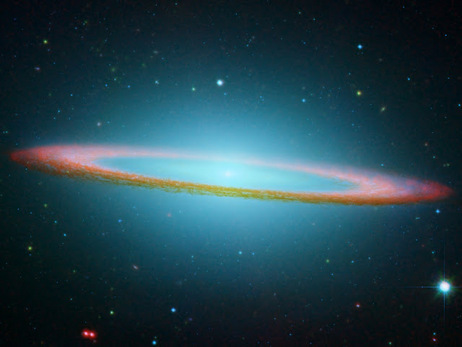Open Innovation and the Future of Rocket Design
Published Jan-09-14Breakthrough:
Three entries win top prizes in an open source competition for cheaper and better rocket engines. The project also led to the creation of a collaborative community, a forum for creativity and innovation in space research.
Company:
DIYRockets, United States
The Story:
 Venturing out into space whether through unmanned probes or aboard rockets and shuttles is no longer the preserve of large government institutions. The final frontier is the new frontier as numerous companies all over the planet are designing and creating nano-satellites and other small objects to study the solar system and beyond.
Venturing out into space whether through unmanned probes or aboard rockets and shuttles is no longer the preserve of large government institutions. The final frontier is the new frontier as numerous companies all over the planet are designing and creating nano-satellites and other small objects to study the solar system and beyond. Not surprisingly, blasting these machines off into space is an expensive and often cost prohibitive affair. DIYRockets, a global space company is among those hoping to change that by bringing an open innovation approach to the exploration of space: “Our mission is to lower the cost of space exploration as much as possible by generating extremely low-cost knowledge and technology through open sourcing and crowdsourcing.”
New 3D Rocket Engine Designs
In March 2013, DIYRockets launched an open innovation competition tasking diverse and creative minds to come up with a new engine design that in the short-term would be used to transport small payloads, but then later would “disrupt the space transportation industry.”
Those who took part in the 3D printed rocket engine contest worked with Sunglass, a cloud-based platform for creating, editing and sharing 3D designs.
Darlene Damn, co-CEO of DIYRockets told Forbes Magazine: "We were inspired to create DIYRockets to provide everyone a way to become involved in the space industry and explore it and, through open sourcing and crowdsourcing dramatically lower the costs of space exploration by unlocking talent from around the world as have never been possible before."
Top Prizes Awarded
Prize money of $10,000 was on offer and the first prize for Best Rocket Engine and a check for $5,000 was won by Team Stratodyne. Their design was of a 3D printable rocket engine that can be used in a vehicle to get a 10kg payload into low earth orbit. A launch system was developed alongside the engine.
The Student Prize and a check for $2,500 was awarded to UCSD SEDS (University of California San Diego's Students for the Exploration and Development of Space). They presented a rocket engine named "Tri-D".
http://www.youtube.com/watch?feature=player_embedded&v=k15hnT65IfM
Team Sol-X won the Collaborative Design Prize and check for $2,500.
Democratizing Rocket Design
This open innovation space contest not only helps promote research into space technologies, but also acted as a launchpad for discussions around the creation of next generation technologies.
Students, designers and engineers were also invited to submit other 3D printed rocket part designs or designs for other space technologies. Although they could not be entered into the competition the submitted technologies formed part of a bigger conversation and may attract future partners and collaborators.
It’s part of DIYRockets’ strategy to create a community around 3D rocket engine design that will help to affect innovative change in the space industry.
As governments have cut funding of space programs over time, many in the industry believe that open innovation and competition-based approaches will be hugely beneficial.
Future open innovation competitions for commercial space applications are being developed by DIYRockets and Sunglass.
Next Story »


